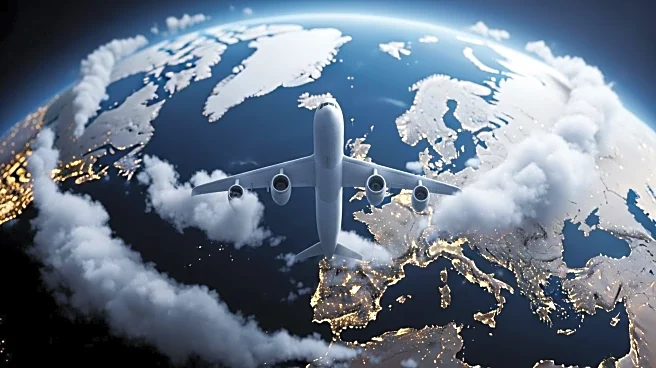What's Happening?
The International Civil Aviation Organization (ICAO) is under scrutiny for its Carbon Offsetting and Reduction Scheme for International Aviation (CORSIA), which has been criticized for failing to stabilize aviation CO2 emissions. A new analysis by T&E highlights that CORSIA could cost European aviation between €7 and €43 billion over the next decade, with minimal climate benefits. The scheme covers only 26% of EU aviation's CO2 emissions by 2035. Critics argue that the EU should strengthen its own cap-and-trade system (EU ETS) to better incentivize decarbonization.
Why It's Important?
The financial burden of CORSIA on European aviation could have significant economic implications, potentially diverting funds from more effective climate measures. The reliance on CORSIA, which is less stringent than the EU ETS, may hinder the EU's ability to meet its climate goals. Strengthening the EU ETS could provide a more robust framework for reducing emissions and generating revenue for green technologies. The debate over CORSIA versus EU ETS reflects broader challenges in aligning international and regional climate policies.
What's Next?
The EU may consider expanding the scope of the EU ETS to cover more flights, potentially unlocking additional revenue for green aviation technologies. The upcoming ICAO General Assembly will be a critical platform for discussing the future of international aviation emissions policies. Stakeholders will be watching for any shifts in policy that could enhance the effectiveness of emissions reduction efforts and align with broader climate goals.











